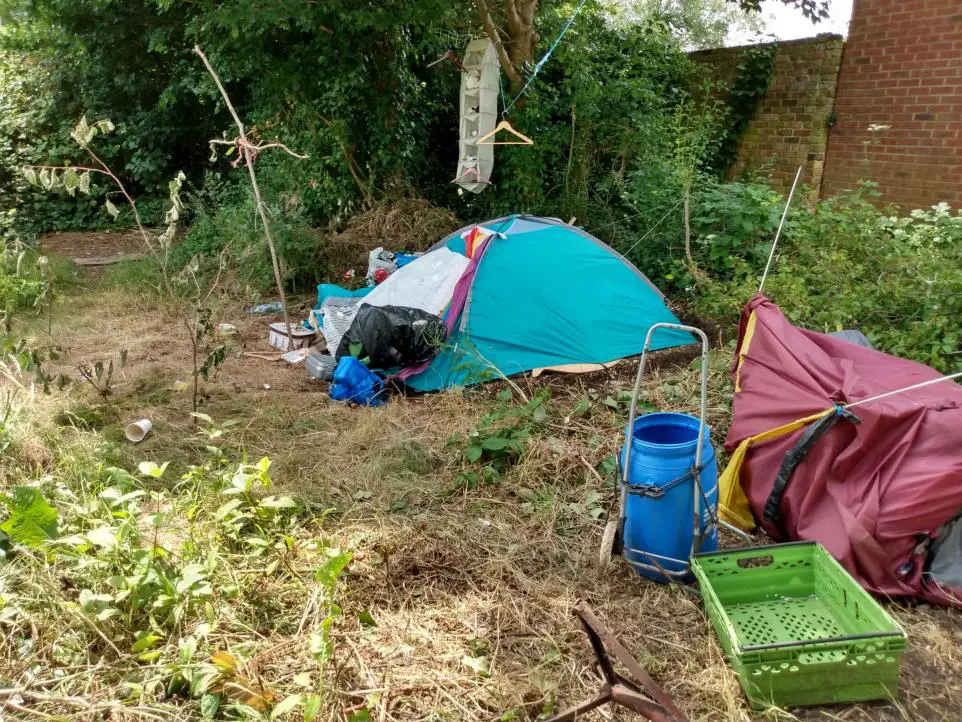From artisanal crepes to rebellious cheesecake waffles, Reading's breakfast rebels are transforming morning meals. These seven spots will revolutionize how you start your day.
The quiet town of Slough, known for its historical significance and serene parks, is now facing a stark reality that remains hidden to many. Recent investigations have uncovered several homeless camps within the town's lush green spaces, shedding light on an issue that calls for urgent attention and action.
Discovery of Homeless Camps in Herschel Park and Stabmonk Park
In a surprising revelation, homeless camps have been discovered in two of Slough's cherished parks – Herschel Park and Stabmonk Park. These makeshift settlements are home to individuals and families who have found themselves with no other option but to take refuge amidst nature.
Herschel Park, known for its picturesque landscapes and historical trees, now hides patches of tarpaulin and temporary shelters amongst its dense foliage. Stabmonk Park, similarly known for its open spaces ideal for family outings and community events, is now also a refuge for the town’s homeless population.
The Conditions Within the Camps

Source: https://www.sloughobserver.co.uk/news/24477340.revealed-inside-hidden-homeless-camps-slough/
Walking through these camps reveals a harsh reality. The inhabitants live in basic and often unhygienic conditions, struggling to make ends meet. Makeshift tents and shelters created from discarded materials form the landscape of these hidden communities. Access to clean water, sanitation, and essential services is a significant challenge for those living here.
Residents of these camps often find themselves on the fringes of society, invisible to the bustling everyday life of Slough. Mental health issues, substance abuse, and a lack of employment opportunities are common themes among those who call these camps home.
Community Response and Call to Action
The revelation of these camps has prompted various responses from the local community and authorities. While some residents express concern and empathy, others highlight the need for a safe and clean environment for all park visitors. This divergence brings into focus the complexity of addressing homelessness comprehensively.
Local charities and support groups have sprung into action, offering food, medical aid, and temporary accommodation to the homeless residents. However, these efforts, although commendable, only scratch the surface of a deeper societal issue.
The council has also pledged to work more closely with housing associations and social services to provide long-term solutions. Plans for affordable housing projects, increased mental health support, and job training programs are in the works, aiming to bring about sustainable change.
The Human Stories Behind the Numbers
Beyond statistics and policy discussions lie the individual stories of those affected. Each person in these camps has a unique narrative of hardship, often interwoven with loss and resilience. By understanding these stories, the community can foster a greater sense of compassion and urgency in addressing the roots of homelessness.
For instance, one resident spoke of losing their job due to the pandemic, leading to eviction and eventually, living in a tent in Herschel Park. Another shared their battle with mental illness, exacerbated by the lack of stable housing and adequate support systems.
A Path Forward
Addressing homelessness in Slough requires a multifaceted approach involving government intervention, community support, and the active participation of businesses and other stakeholders. It calls for immediate relief measures alongside long-term strategies to prevent homelessness from recurring.
As Slough grapples with this hidden crisis, it becomes a call to society to recognize and act upon the silent struggles of its homeless population. With collective effort and compassionate action, there lies hope for transforming the lives of those who are currently out of sight, but not out of mind.